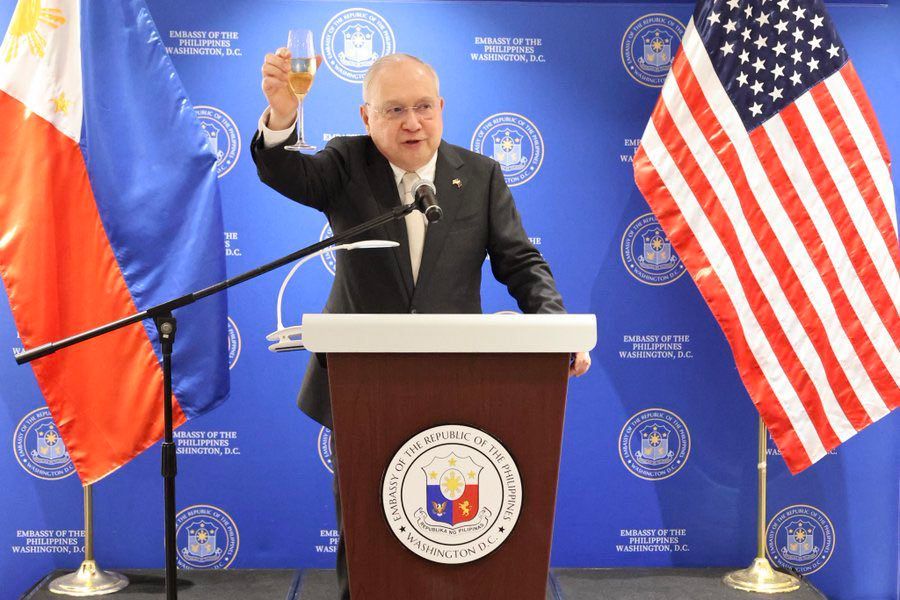The Philippine government will continue to engage with the United States regarding the possible impact of the 90-day foreign aid suspension signed by US President Donald Trump on the two countries’ agreements and cooperation, the Department of Foreign Affairs (DFA) said on Monday, Jan. 27.

Philippine Ambassador to Washington Jose Manuel Romualdez raises a toast to US President-elect Donald Trump and his administration ahead of the Jan. 20 inauguration. (Photo courtesy of Amb. Romualdez)
“The Department will continue to engage the US government on this matter,” DFA spokesperson Ma. Teresita Daza said in a statement.
Citing the recent conversation between DFA Secretary Enrique Manalo and newly installed State Department Secretary Marco Rubio, she noted how the two officials “underscored the importance of PH-US alliance and committed to work towards strengthening security, economic and regional cooperation.”
“The Department understands that the US Department of State as well as other relevant US government agencies involved in the aid program are studying the executive order and how it will impact on US partnerships,” Daza added.
One of Trump’s first orders as president was to halt the US government’s foreign assistance programs for 90 days to give way to a review that would determine if such programs are aligned with the Trump administration’s foreign policy.
Philippine Ambassador to Washington Jose Manuel “Babe” Romualdez already allayed fears, saying that the suspension will not affect the military cooperation between the two allies since the Enhanced Defense Cooperation Agreement (EDCA) is also an important component of US presence in the Indo-Pacific region.
The EDCA is a 2014 agreement between the two countries to bolster their alliance and allow US troops to construct and operate facilities in the Philippines.
The US has been one of the Philippines’ biggest source of aid in various sectors, including disaster relief, economic development, health, and education, among others.
In the Indo-Pacific region, Manila is the largest recipient of US military assistance in the Indo-Pacific region, receiving over $1.14 billion in military equipment and training from 2015 to 2022.
But Trump has taken a hardline stance against US foreign assistance, emphasizing the need to ensure that any aid given by the US is aligned with American interests and values.